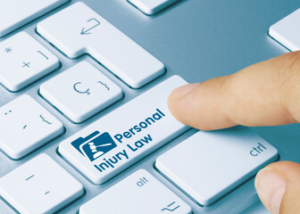
Litigators are great at collecting useful information from witnesses and crafting persuasive arguments. However, trials require a set of skills that not all attorneys possess.
While litigators often settle cases outside of court, trial lawyers have extensive experience negotiating with defendants and taking their cases to a jury verdict. For more information, visit https://www.kaapc.com/.
They Represent Clients in Court
A trial attorney’s job is to advocate for their clients inside of the courtroom. This involves presenting legal arguments, supporting and discrediting witnesses, conducting research on case law and statutes, and addressing any questions or concerns that the judge or jury may have throughout the proceedings. The ability to think critically and solve problems on the spot is also important for these professionals, as they must be able to anticipate any challenges that could arise in a courtroom setting.
The most important trait of a good trial lawyer is their communication skills. They must be able to explain complex concepts clearly and persuasively in order to help their clients understand what is happening during the trial process. They must be able to respond quickly and effectively to any questions from the judge or jury. This is particularly true when arguing the case against the defendant, as they will need to be able to refute any claims made by the defense attorney.
If you’re looking for an attorney who will aggressively represent your interests in the courtroom, a trial lawyer is your best option. They have specialized training in client advocacy and have extensive experience fighting for their clients in trial settings. This can be beneficial if you’re dealing with a difficult defendant or have suffered a serious injury from an accident that you were not at fault for.
When you hire a trial attorney, they will work diligently to prepare your case for trial so that you have the best chance of receiving the compensation that you deserve. This preparation includes a full investigation into your accident, gathering evidence that supports your claim, and calling on experts to add credibility to your testimony. It’s important to keep in mind that trial lawyers spend a substantial amount of their time outside of the courtroom, so it’s essential for them to have strong communication and critical thinking skills.
They Prepare for Trial
As a legal professional, it’s your job to help clients understand the complexity of their case and provide guidance in navigating the courts. Trial attorneys often use oratory skills to convey a narrative about their client to the judge and jury, and they work diligently to win a favorable outcome. They need to be ready for everything a judge throws at them, which means thorough preparation.
The trial preparation process is long and complex. It begins long before the trial date, with an attorney surveying evidence and establishing their case theory. They must then compile and organize all of the evidence they will need for trial, ensuring that they have all the documents and files in order to present a cohesive story in court.
During this phase, an attorney will also identify witnesses and prepare them for their testimony. They will also start preparing any necessary paperwork or motions that may need to be filed during the trial. Attorneys must also anticipate the defense’s arguments against their version of the story and prepare counterarguments to demonstrate why their version is more valid.
It is common for an attorney to work with multiple clients during the same trial, requiring careful coordination of their efforts. The final thirty days before trial can be a mad scramble to get everything prepared, but an experienced attorney should have a plan and tools in place to ensure that nothing is left to chance.
A well-prepared attorney will also be able to present their case with confidence and poise. This is because a judge and jury will take into account how an attorney presents their argument, which is often more influential than the actual facts of the case. A well-crafted narrative will be more believable and memorable, which can lead to a more positive judgment.
It is important for an attorney to have a reliable source of certified legal transcriptions during trial preparation, as these can be used to review depositions and hearings. In addition, a good transcription company will be CJIS compliant and have criminal background checks performed on their employees to ensure the highest quality of service.
They Communicate with Jurors
Trial attorneys must be aware of the many ways that jurors assess their professional competence, including non-verbal behavior. Whether eye-rolling or nodding along with a witness during testimony, or smirking and smiling at the courtroom, a lawyer who sends the wrong message to a prospective juror could have a negative impact on their client’s case. A good trial attorney must be able to connect with the jury to present their clients’ cases in an effective and persuasive manner.
The rules on contacting jurors during voir dire and trial are well established. However, modern technology has changed the game for lawyers in terms of how they learn about potential jurors. For example, the long-established ground rules regarding ethical limits on contacting prospective and empaneled jurors did not anticipate social media, Internet search engines, and the aggregation of consumer data by technology firms.
A lawyer can easily discover information about a prospective juror on the Internet regarding sexual orientation, religion and other topics that would be considered impermissible to inquire about in open court in an ordinary voir dire. This raises the question of how a trial attorney can conduct appropriate research without jeopardizing the juror’s impartiality.
In a recent New York City Bar Association (“NYCBA”) opinion, the Committee on Ethics and Professional Responsibility addressed the issue of using the Internet to learn about prospective jurors. The Committee determined that a lawyer may, during voir dire or during trial, view a prospective juror’s publicly-available social media page, as long as the attorney does not affirmatively contact the prospective juror (e.g., by sending an “access request”) to gain access to portions of the prospective juror’s profile that are private and not accessible to the general public. The Committee likened such a visit to the equivalent of driving down a person’s street and peering into their house.
In addition, if the attorney does come across material online that may threaten a prospective juror’s ability to render an impartial decision in the matter under consideration during trial, then the attorney must promptly notify the court. For example, if a lawyer discovers that a prospective juror is involved in activities that would violate a court-imposed restriction on the admissibility of evidence, then the attorney must quickly notify the court of this discovery.
They Negotiate Settlements
The legal battle between a plaintiff and an allegedly liable party can sometimes settle outside of court. Settlement negotiations are initiated with a demand letter that describes your claim, supporting evidence and desired settlement amount. This process typically consists of communications that include counteroffers, additional evidence presentations and various negotiation techniques like anchoring (setting an initial offer to influence subsequent negotiations around that figure). The in-court experience of a trial lawyer is often crucial for effectively managing this dynamic interaction.
Trial attorneys have exceptional communication skills and are able to present complex information in a compelling and straightforward way that appeals to a jury. They are also able to deliver factual evidence in an emotionally charged manner that inspires empathy for the victims of negligence. This approach creates an impact on the courtroom and helps jurors understand the full impact of a case.
Some defendants are more likely to accept a generous settlement offer when they know they will be facing a respected trial attorney. The reputation of a trial lawyer is often so strong that defendants consider going to trial as a last resort to avoid lengthy and costly legal battles.
An extensive understanding of a wide range of personal injury laws in Montana gives trial lawyers the ability to negotiate effectively with insurance companies and other attorneys. Their comprehensive knowledge of the courtroom and its procedures allows them to manage a lawsuit carefully from beginning to end, ensuring that no procedural misstep compromises the integrity of your claim.
If you need an experienced trial lawyer for your case, Morris & Dewett Injury Lawyers can help. Our attorneys are well-versed in negotiating pretrial settlements and can transition your case into a civil trial should it become necessary to do so. Having a trial attorney in your corner will significantly improve your chances of getting a fair settlement from an insurer. It will also make a liable party more willing to fight for your case in front of a judge and jury. Contact us to schedule a free consultation today. We are available to speak with you by phone, email or live online chat.

